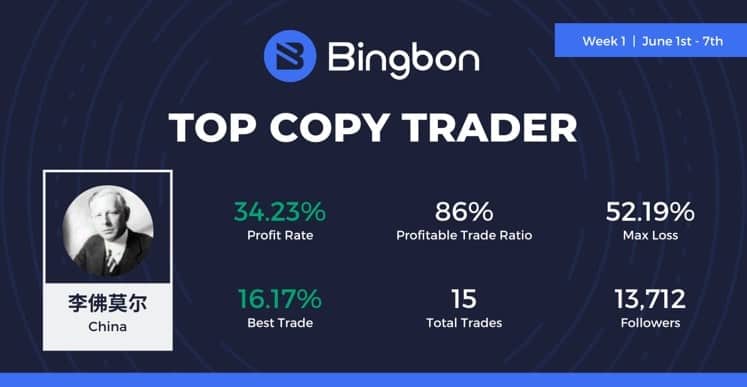Table of Contents
Making money on the cryptocurrency markets is commonly associated with active day trading. Here are five passive alternatives. In the crypto industry’s formative years, Bitcoin faucets allowed interested parties to passively earn BTC to get some skin in the game. Although Bitcoin was virtually worthless at the time, developer Gavin Andresen’s idea to distribute coins as widely as possible was both novel and prescient.

Fast forward ten years, and cryptocurrency is easy to source but, at least where Bitcoin is concerned, costly to acquire. Although many faucets still exist, the payouts are derisory, forcing nocoiners and low coiners to either buy crypto and hodl or dabble in trading – something which can very quickly become a full-time job.
Over the years, other earning options have come to the fore, enabling token holders to grow their cryptocurrency without gambling on market movements. Here are five of the best ways to earn cryptocurrency without actively trading in 2020.
Credit Card’s Cashback
Socios.com, who developed the world’s first ‘fan engagement’ app, gives users the ability to accrue their Fan Tokens from their favorite clubs and Chiliz tokens ($CHZ) – all they need to do is sign up for the ‘More Than A Fan’ Visa debit card to start earning cash-back rewards.
App users can obtain a Socios debit card with their chosen team’s logo, providing they retain a minimum amount of the club’s token. You can also easily trade CHZ on a supported exchange like Crypto.com or Binance.
Speaking of Binance, the world’s leading cryptocurrency exchange, also launched their Visa card that Europeans can already apply for.
In an official announcement, the company revealed that the cashback on it could get as high as 7%, which is nothing short of impressive.
Created by sports-centric fintech startup Chiliz, the Socios app also offers the ability to ‘hunt’ tokens in the Augmented Reality (AR) world viewable via a smartphone camera.
As you go about your business, you’ll inevitably come across CHZ, as well as different team tokens depending on your geolocation, with these tokens giving holders voting power for certain club decisions, discounts on merchandise, and even match tickets, including special VIP seats and experiences.
Staking and Validating
Staking is another hassle-free option for those looking to put their crypto to work. Essentially, this system permits the token-holders to “stake” their digital assets in a wallet and earn rewards in the form of newly minted coins for doing so.
Recently, some of the leading exchanges started to offer staking options for cryptocurrencies like Tezos, Harmony, Tron, QTUM, and more.
AdEx, an ethical digital ad network that combines traditional peer-to-peer technology, cryptography, and blockchain, helps users’ make a return on their crypto via incentivized staking or what it terms “security mining.”
Once a user lock-up ADX tokens, you are unable to withdraw for at least 30 days. But here’s the kicker: as well as being able to earn extra ADX for staking bonds, users also earn DAI from validator fees. It’s a clever way of incentivizing users to remain within the AdEx ecosystem while earning a return on their stake that yields up to 100%.
Copy Trading
The idea of copy trading is simple: rather than getting up to speed on the intricacies of trading, you mimic the actions of professionals, who are incentivized to ensure you come out in the green. Bingbon is one platform with a copy trading feature, with users able to comb through hundreds of top traders, review their past performance, and copy trade.
While it’s technically still trading, it’s a passive form that helps onboard novice users. Some stick with copy trading while others graduate to trading on their own initiative, having learned about effective strategies. The latter sometimes become copy traders themselves, earning 8% of their followers’ net profits. Of course, copy trading doesn’t mean you’ll exit in profit every time: while you get to replicate the copy trader’s success, you’ll also share their losses. In other words, choose your copy trader wisely and take a measured approach.
Web Browsing
The idea of earning cryptocurrency for something you’d do as part of your everyday life is incredibly attractive, and therein lies the appeal of Brave rewards. Brave, an open-source, privacy-centric web browser modeled on Google Chrome (but minus the ads and trackers), monetizes users’ attention span by paying them in Basic Attention Tokens (BAT) every time they view privacy-respecting adverts.
Users determine which sites they want to support and can even tip their favorite content creators directly. According to Brave, web users earn 70% of the revenue Brave receives from advertisers, and by paying it forward, they can support the content they love. As for content creators, they can utilize Brave’s partner exchange Uphold to convert BAT into a currency of their choosing. Everyone’s a winner.
Pledge Your Assets
‘HODL and earn’ is the strapline of Cred, one of many projects capitalizing on the trend that sees crypto-holders sit on their assets in anticipation of upside further down the line.
Like Brave, Cred partners with Uphold – plus other platforms like Bitcoin.com and Bitbuy – via which it puts users’ assets to work, specifically lending to and transacting with retail borrowers and money managers.
Cred pays interest to users from 190 countries in crypto, fiat, or stablecoin, returning their crypto to them after six months. It’s also possible to auto-enroll for additional three-month periods, with Cred offering some of the best lending and borrowing rates in the industry. Interestingly, Cred recently enabled in-app staking via the Klever wallet.
As you can see, hodling and trading aren’t the only two options for earning yield in the digital economy. By taking advantage of such initiatives, you can create a passive revenue stream and watch your wallet balance grow.
- What Could Bitcoin’s Price Be in 25 Years? A Lambo or Just a Latte?” 🚀💸 - December 23, 2024
- Solana Price Analysis – December 18, 2024: The Slippery Slope of SOL 🚀📉 - December 18, 2024
- Bitcoin Price Analysis – 16/12/2024: A Dance in the Ascending Channel - December 16, 2024




![Best Platforms for Copy Trading in [current_date format=Y] 11 Best Platforms for Copy Trading](https://cryptheory.org/wp-content/uploads/2024/12/copy-trading-350x250.jpg)
![Top 10 Cryptocurrency Platforms for Grid Trading in [current_date format=Y] 12 Top 10 Cryptocurrency Platforms for Grid Trading](https://cryptheory.org/wp-content/uploads/2024/12/grid-trading-350x250.jpg)
![BingX Exchange: A Detailed Guide to Using, Trading, and Maximizing Features in [current_date format=Y] 13 BingX Exchange: A Detailed Guide to Using, Trading, and Maximizing Features](https://cryptheory.org/wp-content/uploads/2024/11/4-5-350x250.jpg)



















